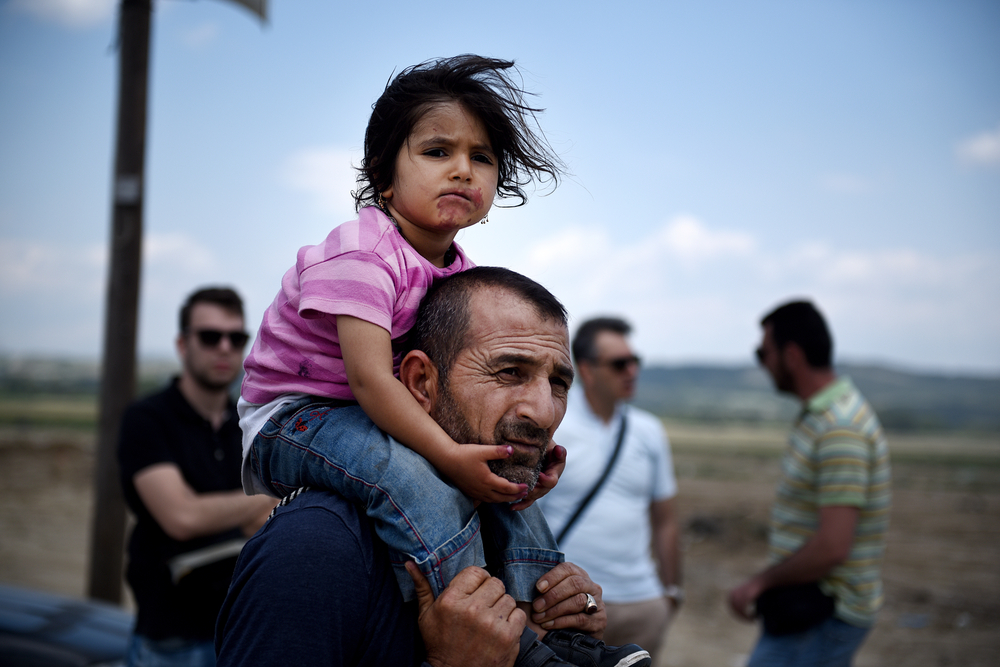June 20 marks World Refugee Day – the 17th time the United Nations-designated day has been observed. This year’s comes as a record number of people are forcibly displaced around the world – 65.3 million, according to the United Nations Human Rights Commissioner for Refugees. That’s approximately equally to the populations of France or the United Kingdom.
World Refugee Day is dedicated to both remembering the struggles that refugees face while fleeing violence and to celebrating their invaluable contributions to the societies of which they become a part. This year’s feels particularly poignant, as the Trump administration’s efforts to suspend the entire U.S. refugee resettlement program — and to ban virtually all migration from several Muslim-majority countries — remain tied up in the courts.
Yet even as the administration rails against refugees, it continues to participate in the ongoing global warfare — much of it under the so-called “war on terror” — that perpetuates the refugee crisis. It’s long past time to critically examine our country’s role in forced migration.
The war on terror began in 2001, the same year as the first World Refugee Day. Since then, the U.S. has played a significant role in the displacement of people around the world — especially in the Middle East and neighboring areas, where we’ve almost exclusively pursued a policy of war and militarism. We’ve launched “regime change” operations in Afghanistan, Iraq and Libya, and bombing campaigns in Pakistan, Somalia, Syria and Yemen.
This past April, President Donald Trump’s continuation of the war on terror included dropping “the mother of all bombs” on Afghanistan, where the U.N. counts 2.7 million refugees. Together with Syria and Somalia, two other countries the U.S. has active military operations in, those three states account for over half of all people displaced outside their home countries.
For many, the alternative to displacement is death. Physicians for Social Responsibility and its international partners produced a report in 2015 estimating that 1.3 million Iraqis, Afghanis and Pakistanis have died in the course of the war on terror.
Despite the fact that they’re largely displaced by wars we’ve helped instigate, Muslim refugees in particular are portrayed in our media and by politicians as dangerous – as criminals, terrorists, financial burdens, etc. We’re taught to fear refugees while simultaneously applauding ourselves as a country that is (supposedly) tolerant of them.
For example, U.S. military actions in recent weeks have displaced some 200,000 Syrians, according to one recent report. Yet Trump has referred to Syrian refugees as “Trojan horses,” as though they left their homes in a covert attempt to undermine the U.S. government. It’s not enough to try to bar them from our country – apparently Trump has to tarnish them in public opinion, too.
This seems to be the cruel illogic of our wars: to obscure the violence we’ve created and to deny the victims any sort of accountability, much less entry into the country that displaced them from theirs. Yet if we’re serious about remedying the refugee crisis, then the solution isn’t in the number of refugees we accept or deny – it’s to end the wars that are displacing people.
The way to do this is threefold: First, we must rely on diplomacy to resolve conflicts. Second, we must acknowledge the harms our foreign policy has caused. Third, we must stop perpetuating wars that accomplish nothing in the way of making us safer (rather, they result in more conflict at home).
In the meantime, we should continue welcoming refugees. On this 17th World Refugee Day, let’s take a critical look at our role in the refugee crisis and start rectifying the injustices we’ve caused.
